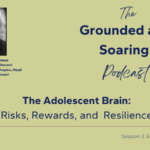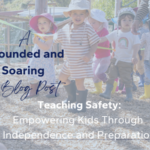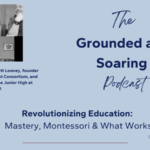Dear MMS Community,
In my senior year of college, I completed a teaching internship at a Youth Authority prison. My job was to co-teach a “Victim Awareness” class with a correctional officer and to circulate among the inmates to offer career and education guidance. One evening as I walked through the barracks, I met Jason, an African-American inmate about my age. As we spoke, we were both surprised that the conversation turned to philosophy and literature. Over the weeks, we developed a friendship focused on passionate conversations about books and on what it takes to lead a good life.
Toward the end of my internship, we made a confession. We both admitted that when we first met, we saw each other through thick filters of narratives: my assumptions about Jason given his race and status as an inmate; Jason’s assumptions about me given my race and status as a university student. As we embraced on my last day, we looked in each other’s eyes and expressed awe at the rare experience. We had delighted in each other’s individuality, and contacted a shared humanity. And there was sadness, too: Why is this so rare?
When I share this story with my sons, I call it, Just like me. Jason and I had very different backgrounds, world views, and barriers and privileges. And, we each loved our parents, sought happiness and health, had specific likes and dislikes, and strove to avoid pain and suffering. We both had dreams for our futures, people who loved us, and experiences of great joys and of great sorrows. Just like me.
The other learning I share with my sons is about race. On my first evening in the facility, I was dumbstruck. On my university campus, the vast majority of students were white. In this youth correctional facility, the vast majority of inmates–all of whom were approaching college-age–were either Latino or African-American. I was compelled to dig into researching the cause of the racial disparities in both higher education and prisons. The more layers of the questions I peeled back though, the more complicated the picture became: as I sought an easy answer, none appeared. One truth was clear: Jason and I shared a common humanity, and the color of our skin affected our life experiences.
As we live this time together, a time when the streets of so many American cities are erupting in protest and pain connected to race, your children and you may have questions. Many parents feel uncomfortable talking about race with their children; they feel ill-equipped. If you would like to increase your capacity and understanding to prepare for these important conversations, here are two helpful resources:
- An excellent twenty-minute podcast: “Parenting: Difficult Conversations, Talking Race With Young Children.”
- This booklist curated by MMS’s Diversity, Equity, and Inclusion Committee.
Cornerstones of Montessori education are preparing students for the society in which they live, and recognizing and valuing the interdependence of all humanity. As the complexities of our society continue to reveal themselves, we at MMS remain steadfast in our commitment to our students: We will prepare them well as capable, caring, positive contributors to our society and world.
All my best,
Sam

As Head of School, Sam is responsible for ensuring that Marin Montessori flourishes and that the School’s mission is brought to life each and every day.




